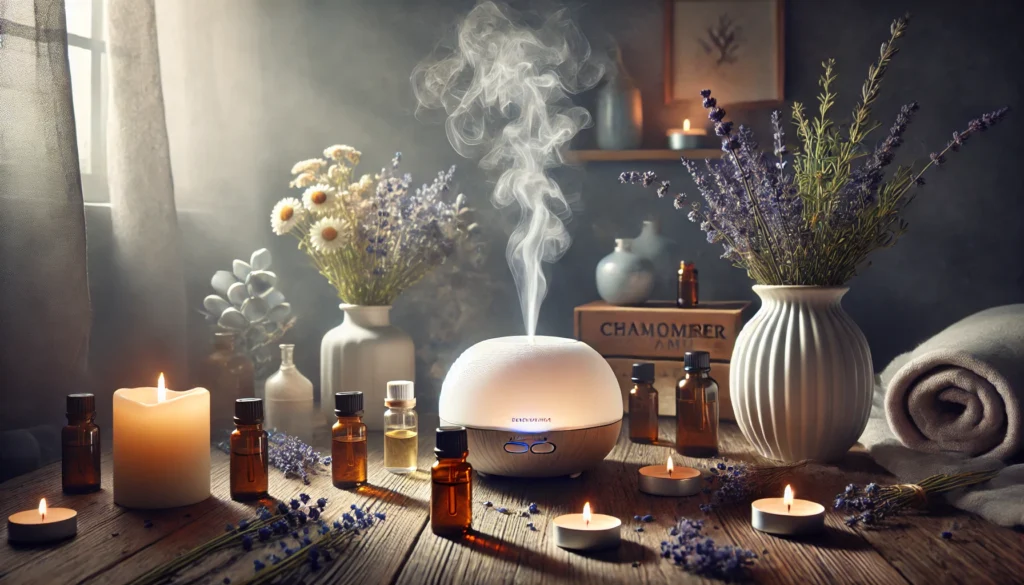Understanding Anxiety and Its Effects on the Body
Anxiety is a complex emotional and physiological response to stress, characterized by excessive worry, nervousness, and heightened autonomic arousal. It manifests in various ways, including rapid heartbeat, muscle tension, and restlessness. Chronic anxiety can interfere with daily life, leading to long-term health issues such as high blood pressure, weakened immunity, and digestive problems. The physical symptoms of anxiety often lead individuals to seek relief through medication, including muscle relaxers. However, the question remains: Can muscle relaxers help with anxiety?
You may also like: Best Herbal Alternatives to Anxiolytics: Natural Remedies for Anxiety Relief
The Role of Muscle Relaxers in Anxiety Management
Muscle relaxers, commonly prescribed for muscle spasms, tension, and pain, work by depressing the central nervous system (CNS) to reduce muscle contractions. Some of these drugs, such as benzodiazepines and certain antispasmodic medications, have sedative effects that may induce relaxation and reduce symptoms of anxiety. The connection between anxiety and muscle relaxers lies in the way stress-induced muscle tension can exacerbate feelings of unease. By alleviating this tension, some individuals may experience temporary relief from anxiety symptoms. However, muscle relaxers are not primarily intended for anxiety treatment and should be used with caution.

Do Muscle Relaxers Help with Anxiety? The Science Behind It
While muscle relaxers can provide short-term relief by reducing physical symptoms of anxiety, they do not address the root cause of the condition. Medications like cyclobenzaprine and carisoprodol have sedative properties that may help individuals feel calmer, but they are not designed as primary treatments for anxiety disorders. The sedative effects may provide a sense of relaxation, but these drugs do not modify the underlying neurological pathways involved in chronic anxiety. Moreover, the potential for dependency and side effects raises concerns about their long-term use for anxiety relief.
Will a Muscle Relaxer Help Anxiety in Specific Cases?
For individuals experiencing acute muscle tension as a result of anxiety, a muscle relaxer may provide temporary relief. For instance, people who suffer from tension headaches or jaw clenching due to stress may find that a muscle relaxer alleviates these symptoms, indirectly reducing their anxiety. However, for those with generalized anxiety disorder (GAD) or panic disorder, muscle relaxers alone are unlikely to be a sustainable or effective solution. Instead, they may be used in conjunction with other therapies under medical supervision.
Risks and Side Effects of Using Muscle Relaxers for Anxiety
The use of muscle relaxers for anxiety carries several risks. Common side effects include drowsiness, dizziness, dry mouth, and decreased cognitive function. Prolonged use can lead to tolerance, dependence, and withdrawal symptoms, particularly with medications like carisoprodol. Additionally, combining muscle relaxers with other CNS depressants, such as alcohol or benzodiazepines, can result in dangerous respiratory depression. Because of these risks, muscle relaxers should not be used as a primary treatment for anxiety without medical guidance.
Natural Alternatives to Muscle Relaxers for Anxiety Relief
Many individuals seeking relief from anxiety prefer to explore natural alternatives rather than pharmaceutical interventions. Herbal remedies and holistic supplements can provide a more sustainable approach to managing stress and muscle tension without the risks associated with prescription medications.
Herbal Remedies and Adaptogens for Anxiety and Muscle Relaxation
Herbal remedies have been used for centuries to promote relaxation and reduce anxiety. Some of the most effective herbs include:
- Valerian Root: Known for its sedative effects, valerian root can promote relaxation and improve sleep quality, which may help alleviate anxiety-related muscle tension.
- Ashwagandha: As an adaptogen, ashwagandha helps the body adapt to stress and may reduce cortisol levels, thereby alleviating both mental and physical symptoms of anxiety.
- Passionflower: Often used for its calming properties, passionflower can help reduce anxiety symptoms and muscle tension.
- Chamomile: This herb has mild sedative effects and can help with relaxation and stress reduction.
- Kava Kava: Kava has been studied for its anxiolytic effects, and while effective, it should be used cautiously due to potential liver toxicity.
Holistic Supplements for Anxiety and Muscle Relaxation
Holistic supplements can support the body’s natural stress response and promote relaxation. Some key supplements include:
- Magnesium: This essential mineral plays a crucial role in muscle function and relaxation. Magnesium deficiency has been linked to increased stress and anxiety.
- L-theanine: Found in green tea, L-theanine promotes relaxation without sedation and can help reduce anxiety symptoms.
- GABA (Gamma-Aminobutyric Acid): As an inhibitory neurotransmitter, GABA helps calm the nervous system and reduce excessive neural activity associated with anxiety.
- 5-HTP (5-Hydroxytryptophan): A precursor to serotonin, 5-HTP may help improve mood and reduce anxiety.

Lifestyle Changes to Reduce Anxiety and Muscle Tension
Beyond herbal and supplement interventions, lifestyle changes can significantly impact anxiety levels and muscle tension. Some of the most effective strategies include:
- Regular Exercise: Physical activity helps release endorphins, reduce stress hormones, and relax muscles.
- Mindfulness Meditation: Practicing mindfulness can help individuals become more aware of their thoughts and reduce anxiety triggers.
- Progressive Muscle Relaxation (PMR): This technique involves tensing and relaxing different muscle groups to promote overall relaxation.
- Breathing Exercises: Deep breathing techniques, such as diaphragmatic breathing, can activate the parasympathetic nervous system and reduce stress.
- Adequate Sleep: Poor sleep can exacerbate anxiety symptoms, so maintaining a consistent sleep schedule is crucial for mental well-being.
The Future of Anxiety Treatment: A Comprehensive Approach
While muscle relaxers can offer temporary relief for anxiety-related muscle tension, they are not a sustainable solution for long-term anxiety management. A holistic approach that includes herbal remedies, holistic supplements, and lifestyle changes provides a more effective and sustainable way to address anxiety. By incorporating natural methods and focusing on overall well-being, individuals can achieve lasting relief from anxiety without the risks associated with pharmaceutical interventions.
Frequently Asked Questions (FAQ) on Muscle Relaxers and Anxiety
1. How do muscle relaxers affect the nervous system, and can they help with anxiety? Muscle relaxers primarily work by depressing the central nervous system (CNS), which leads to muscle relaxation and a decrease in spasms or tension. Since anxiety often causes physical symptoms like muscle tightness and restlessness, muscle relaxers may provide temporary relief. However, while they may help reduce the bodily symptoms of anxiety, they do not directly address the root causes of anxious thoughts or emotional distress. Individuals wondering, “Can muscle relaxers help with anxiety?” should consider that these medications are not designed for long-term mental health treatment. Instead, a combination of therapy, relaxation techniques, and lifestyle adjustments often proves more effective for managing chronic anxiety.
2. Are muscle relaxers a safe option for long-term anxiety management? While muscle relaxers may provide short-term relief, they are not recommended for long-term anxiety management. These medications can lead to tolerance, meaning the body requires higher doses to achieve the same effect, which increases the risk of dependency. Additionally, common side effects such as drowsiness, dizziness, and impaired cognitive function can interfere with daily activities. If someone is considering whether a relax drug is a sustainable solution for anxiety, they should consult a medical professional for alternative treatments. Cognitive-behavioral therapy, meditation, and non-addictive herbal supplements often provide safer long-term relief.
3. Do muscle relaxers help with anxiety by improving sleep? Many people with anxiety struggle with sleep disturbances due to excessive worry and an overactive nervous system. Some muscle relaxers have sedative properties that can promote sleep, indirectly helping with anxiety by improving rest quality. However, reliance on muscle relaxers for sleep is not ideal, as it does not address the underlying causes of insomnia or anxiety. Instead, natural approaches like melatonin supplements, breathing exercises, and sleep hygiene practices are recommended for sustained sleep improvement. When considering whether muscle relaxers help anxiety-related sleep problems, individuals should be aware of potential risks such as morning grogginess and dependence.
4. Can combining muscle relaxers with other medications enhance anxiety relief? Combining muscle relaxers with other medications, such as benzodiazepines or antidepressants, can sometimes increase their calming effects. However, this approach must be done under strict medical supervision, as the combination can lead to excessive sedation, impaired coordination, and respiratory depression. For those asking, “Will a muscle relaxer help anxiety more effectively when used with other drugs?” the answer depends on individual health factors. Safer alternatives include non-drug strategies like guided meditation, acupuncture, and progressive muscle relaxation techniques, which do not pose risks of drug interactions.
5. What natural alternatives to muscle relaxers can help with anxiety? Natural remedies, including herbal supplements and holistic therapies, provide anxiety relief without the risks associated with pharmaceuticals. Adaptogenic herbs such as ashwagandha and Rhodiola help the body cope with stress by regulating cortisol levels. Magnesium is another effective option, as it supports muscle function and relaxation while reducing nervous system hyperactivity. Those exploring alternatives may find that herbal teas, aromatherapy, and mindfulness practices are effective for managing stress-related symptoms. Unlike muscle relaxers, these natural methods offer long-term support for both physical tension and mental well-being.
6. What are the potential side effects of using muscle relaxers for anxiety? While muscle relaxers can reduce muscle tension and provide temporary relief, they also come with several side effects. Common issues include drowsiness, dry mouth, dizziness, and, in some cases, gastrointestinal discomfort. Long-term use increases the risk of dependency, cognitive impairment, and withdrawal symptoms upon discontinuation. Individuals wondering, “Can muscle relaxers help with anxiety without side effects?” should be aware that no medication is completely free of adverse effects. Exploring lifestyle-based anxiety management strategies, such as yoga and biofeedback therapy, may provide relief without unwanted complications.
7. How do muscle relaxers compare to prescription anxiety medications? Muscle relaxers and prescription anxiety medications function differently in the body. Drugs like selective serotonin reuptake inhibitors (SSRIs) target brain chemistry to regulate mood over time, while muscle relaxers mainly address physical tension. Some individuals may wonder, “Do muscle relaxers help with anxiety as effectively as antidepressants or anti-anxiety medications?” The answer is no—muscle relaxers do not treat the underlying neurological aspects of anxiety disorders. For individuals seeking comprehensive treatment, working with a mental health professional to explore therapy and pharmacological options is recommended.
8. Can lifestyle changes replace the need for muscle relaxers in anxiety management? Yes, in many cases, lifestyle changes can significantly reduce the need for muscle relaxers or other pharmaceutical interventions. Regular exercise helps regulate stress hormones and promotes endorphin production, which enhances mood naturally. Practicing deep breathing, engaging in creative activities, and maintaining a balanced diet can also contribute to overall relaxation. Those questioning, “Will a muscle relaxer help anxiety better than lifestyle modifications?” should consider that while medication may offer temporary relief, holistic approaches address both the mind and body, fostering long-term resilience against stress.
9. What should individuals consider before using a relax drug for anxiety? Before using any relax drug for anxiety, individuals should assess their specific symptoms, overall health, and potential medication interactions. Consulting a healthcare provider is crucial, as certain muscle relaxers can cause excessive sedation or interfere with existing conditions. Additionally, patients should consider whether they are seeking short-term relief or a sustainable approach to anxiety management. Alternative methods such as acupuncture, cognitive-behavioral therapy, and guided imagery may provide equally effective results without pharmaceutical risks. Understanding the full scope of treatment options ensures safer, more informed decision-making.
10. What emerging treatments are being explored for anxiety-related muscle tension? Innovative approaches to anxiety treatment are continually being researched, offering promising alternatives to traditional muscle relaxers. Neuromodulation techniques, such as transcranial magnetic stimulation (TMS), show potential in altering brain activity to alleviate anxiety symptoms. Additionally, biofeedback training helps individuals gain control over physiological stress responses by monitoring heart rate and muscle tension in real time. The integration of wearable technology, such as smart stress trackers, allows for personalized anxiety management strategies. Those exploring “Do muscle relaxers help with anxiety?” in the long run may find that non-invasive therapies offer equally effective solutions with fewer risks. As research progresses, more holistic and evidence-based treatments will likely emerge, expanding anxiety relief options beyond pharmaceutical approaches.

Conclusion: Exploring Holistic Paths to Anxiety Relief
The question of whether muscle relaxers can help with anxiety is nuanced. While they may provide temporary relief by reducing muscle tension, they do not address the root causes of anxiety. The risks associated with long-term use make them a less desirable option compared to natural alternatives. Herbal remedies, holistic supplements, and lifestyle changes offer a safer, more effective approach to managing anxiety and promoting relaxation. By embracing a holistic perspective, individuals can cultivate resilience and well-being without relying on pharmaceutical solutions.
natural remedies for anxiety, holistic anxiety relief, herbal muscle relaxers, best supplements for stress, natural stress relief techniques, calming herbs for anxiety, adaptogens for relaxation, herbal supplements for stress, alternative medicine for anxiety, muscle relaxation techniques, stress-reducing herbs, non-prescription anxiety relief, natural ways to relax muscles, mind-body relaxation methods, holistic stress management, nervous system calming herbs, magnesium for relaxation, breathing exercises for anxiety, sleep support supplements, relaxation therapy methods
Further Reading:
The 7 Best Natural Muscle Relaxers
Herbal treatment for anxiety: Is it effective?
Disclaimer
The information contained in this article is provided for general informational purposes only and is not intended to serve as medical, legal, or professional advice. While NewsHealthWatch strives to present accurate, up-to-date, and reliable content, no warranty or guarantee, expressed or implied, is made regarding the completeness, accuracy, or adequacy of the information provided. Readers are strongly advised to seek the guidance of a qualified healthcare provider or other relevant professionals before acting on any information contained in this article. NewsHealthWatch, its authors, editors, and contributors expressly disclaim any liability for any damages, losses, or consequences arising directly or indirectly from the use, interpretation, or reliance on any information presented herein. The views and opinions expressed in this article are those of the author(s) and do not necessarily reflect the official policies or positions of NewsHealthWatch.

